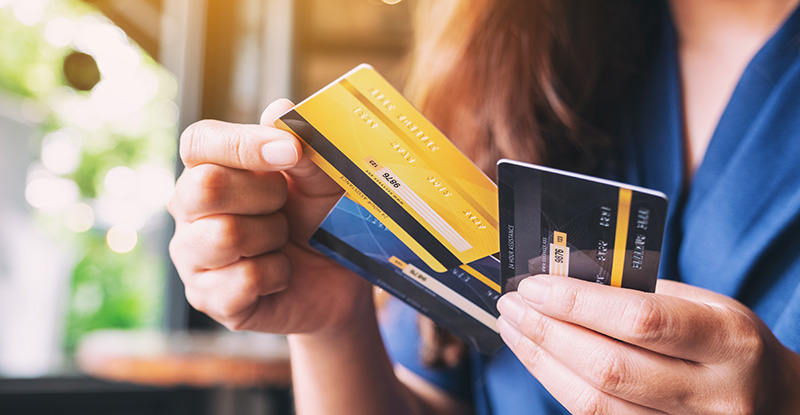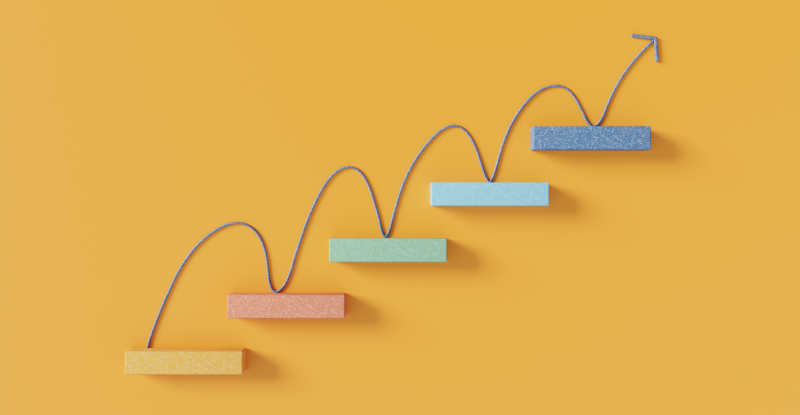
In our podcast episode, Andrew Smith, CPA, CA, chats with Vivian Tse, manager, communications at CPABC, about how you can budget to get out of debt. Part of our Coffee Chats with CPABC podcast series.
British Columbians are being pushed to their financial limits like never before. According to Sands and Associates 8th Annual BC Consumer Debt Study, the COVID-19 pandemic was a major contributing factor for over half of the survey respondents who filed insolvency since March 2020. Nearly 60% noted that the pandemic led to a loss of income, making pre-existing debt loads unmanageable.
The COVID-19 pandemic has highlighted the importance of having a budget. Planning out a budget that works for your situation is a necessary foundation to controlling your finances. Here are the six steps you can take to establish a personal budget to help pay off debt, weather unforeseen financial challenges, and plan for the future.
- Break down monthly and annual costs
Your monthly budget should allocate funds for both regular and irregular expenses. It’s important to review your monthly expenses, including food and grocery, entertainment, transportation, and housing-associated costs such as mortgage, rent, strata fees, and hydro.
Your monthly budget should also incorporate setting aside funds for irregular expenses, such as holiday spending, vet and medical check-ups, strata special assessments and collections, professional dues, or annual memberships. By setting aside funds for these irregular expenses, you can avoid incurring debt to pay for them when they unexpectedly arise.
- Leave room for flexibility
Be realistic with your budget. Similar to dieting, you don’t want to set a budget that is overly restrictive and leaves no room for entertainment or discretionary spending.
In addition, you also want to make sure you’ve budgeted enough for each spending category. For example, if you budgeted $500/month for groceries and you realize you are actually spending $700/month, you should adjust your budget accordingly to ensure you have the right amount allotted.
Although you should have a basic spending plan structure, you should have a budget that is flexible enough to let you have some room for a general spending allowance to cover a reasonable amount of unforeseen costs each month.
- Pay yourself first
Make it easy to pay yourself first by setting up automatic savings transfers through your financial institution and be sure your savings money is separate from your day-to-day account.
You don’t have to be restricted to just one savings goal or just one savings account, either. Depending on your goals, you may want to have multiple savings accounts to keep your financial goals separate. And within each of those savings account, you can consider how to invest your money so that the funds don’t just sit in your account.
Even if you are working on getting out of debt, you should still aim to have some money saved, especially for a rainy day.
- Budget for debt payment
Setting aside money to pay off your debt may be the most frustrating part in planning your budget. If clearing credit card or other debt tops your financial goals, watch out for the following:
When you are only making the minimum payment
Do not mistake minimum payments for substantial progress in paying down debt. Although you are making monthly payments, your minimum payments on a credit card are likely contributing very little towards reducing your debt load, as the majority of that minimum payment goes to interest charges and fees. Check your monthly statement for a “minimum payment warning” that tells you how long it will take you to fully repay your balance if only minimum payments are made per month.
You should always pay more than the minimum when possible, but make sure you have a realistic amount allocated towards credit card payments each month in your budget.
When you can’t pay off debt within five years
Use the “rule of 60” to determine if you can pay off your debt in the next five years by dividing your total non-mortgage debts by 60 to determine the monthly payment you need to make to pay off your debt. If the figure seems impossible or would be a financial strain, you may want to consider connecting with a Licensed Insolvency Trustee to help you explore options to consolidate and cut down your debt.
When your expenses outpace income
Struggling to manage expenses can be a challenge for many people. When facing more costs than income, the first thing you should try is to scale back on expenses as much as possible and evaluate whether it’s possible to increase your income. Consider these questions:
- Which expenses are causing the most damage?
- Is there any way to mitigate the impact of these expenses?
- Do I have options to increase my income?
- Allocate extra income wisely
Got a tax refund or received a bonus? Many often don’t have a clear plan on how to use that extra income and end up spending more than the windfall received.
While you might decide to use some of the money as a reward to yourself, it’s a good idea to allocate a portion of those unplanned funds to either help pay down debt, bulk up your emergency spending account, or add to a savings account.
Carefully consider how to use these types of funds, and remember that this is not “free money”, but rather funds you’ve earned. Spend wisely, as you can only spend it once.
- Keep track and check in
Regularly track your income and expenses, and measure the results against what you had projected in your budget. While mapping out a spending plan helps you keep control of your finances, not every month will be exactly the same, so you need to know where your money is going. By periodically checking in with your budget, you can see what’s working or not working for you and make adjustments accordingly.
Don’t beat yourself up if you are off budget. Remember it can take time, sometimes even up to three to six months, to adjust to a new budget - especially if you’re looking at some major changes to your spending habits.
Andrew Smith, CPA, CA, CIRP, LIT is a Licensed Insolvency Trustee at Sands & Associates Trustees in Kelowna. Passionate about helping British Columbians deal with their financial situations, Smith is a CPA financial literacy volunteer. Visit our financial literacy page to bring a financial literacy session to your community.



